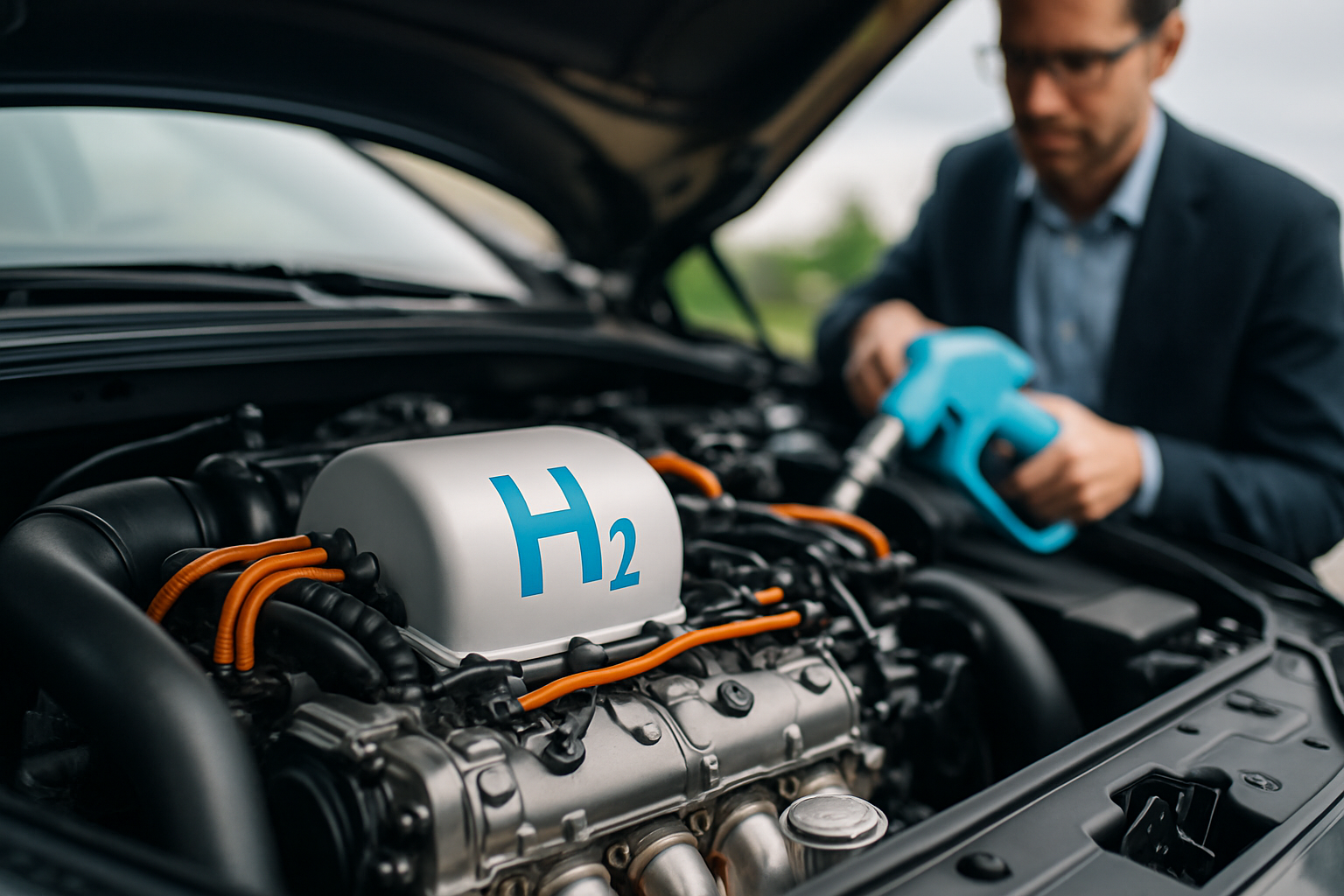Hydrogen Internal Combustion Engines: The Next Frontier
The automotive world stands on the cusp of a revolutionary shift as hydrogen internal combustion engines emerge as a promising alternative to traditional fossil fuel powertrains. This groundbreaking technology combines the familiarity of internal combustion with the clean-burning properties of hydrogen, offering a potential solution to reduce carbon emissions while preserving the thrilling driving experience that enthusiasts crave. As we delve into this exciting development, we'll explore how hydrogen combustion engines work, their advantages, and the challenges that lie ahead in bringing this technology to the mainstream automotive market.

Historical Context and Development
The idea of using hydrogen as a fuel for internal combustion engines is not new. In fact, it dates back to the early 19th century when François Isaac de Rivaz created the first hydrogen-powered internal combustion engine in 1807. However, it wasn’t until the late 20th and early 21st centuries that serious development began in response to growing environmental concerns and the need for alternative fuel sources.
Several major automakers, including BMW and Mazda, have experimented with hydrogen combustion engines over the years. BMW’s Hydrogen 7, based on the 7 Series luxury sedan, was perhaps the most notable production example, showcasing the potential of this technology in a high-end vehicle. Despite these early efforts, hydrogen combustion engines have largely taken a backseat to battery electric and fuel cell technologies in recent years.
Advantages of Hydrogen Combustion
One of the most significant advantages of hydrogen internal combustion engines is their ability to provide a zero-emission driving experience while retaining the familiar feel and sound of a traditional engine. This aspect is particularly appealing to automotive enthusiasts who value the sensory experience of driving. Additionally, hydrogen engines can be developed using much of the existing manufacturing infrastructure and expertise, potentially allowing for a smoother transition from conventional engines.
Another benefit is the rapid refueling time compared to battery electric vehicles. Hydrogen can be pumped into a vehicle’s tank in a matter of minutes, similar to refueling a gasoline-powered car. This convenience factor could be a significant selling point for consumers who are hesitant to adopt electric vehicles due to charging time concerns.
Technical Challenges and Solutions
Despite its promise, hydrogen combustion technology faces several technical hurdles. One of the primary challenges is the need for high-pressure storage tanks to contain the hydrogen fuel safely. Engineers are working on developing composite materials that can withstand the pressure while keeping weight to a minimum.
Another issue is the potential for pre-ignition and knocking due to hydrogen’s low ignition energy and high flame speed. To address this, researchers are developing advanced engine management systems and redesigning combustion chambers to optimize hydrogen combustion. Direct injection technology is also being explored as a means to improve efficiency and reduce the risk of pre-ignition.
Infrastructure and Production Considerations
The success of hydrogen combustion engines heavily depends on the development of a robust hydrogen production and distribution infrastructure. Currently, most hydrogen is produced through steam methane reforming, which still relies on fossil fuels. However, there’s growing interest in green hydrogen production using renewable energy sources to power electrolysis, splitting water into hydrogen and oxygen.
Creating a network of hydrogen fueling stations is another crucial step. While this represents a significant investment, it could potentially leverage existing gas station infrastructure, easing the transition. Governments and private companies are beginning to invest in hydrogen infrastructure, recognizing its potential not just for passenger vehicles but also for heavy-duty transport and industrial applications.
Performance and Efficiency
Hydrogen combustion engines have the potential to deliver impressive performance metrics. The high octane rating of hydrogen allows for higher compression ratios, which can translate to increased power output and efficiency. Some prototype hydrogen engines have demonstrated thermal efficiencies approaching 50%, surpassing many conventional gasoline engines.
However, challenges remain in matching the energy density of traditional fuels. Hydrogen’s low density means that larger fuel tanks are necessary to achieve comparable driving ranges. Ongoing research is focused on improving storage technologies and increasing the overall efficiency of hydrogen combustion systems to address this issue.
Environmental Impact and Lifecycle Analysis
While hydrogen combustion engines produce zero tailpipe emissions, it’s essential to consider the entire lifecycle of the technology. The environmental impact largely depends on the method of hydrogen production. Green hydrogen produced using renewable energy offers the most significant environmental benefits, but it’s currently more expensive than hydrogen derived from fossil fuels.
Additionally, the production of specialized components for hydrogen engines and storage systems must be factored into the overall environmental equation. As the technology matures and economies of scale come into play, the lifecycle emissions of hydrogen combustion vehicles are expected to decrease significantly.
The Road Ahead: Challenges and Opportunities
The path to widespread adoption of hydrogen combustion engines is not without obstacles. High production costs, limited infrastructure, and competition from battery electric and fuel cell technologies present significant challenges. However, the potential benefits of this technology, particularly for certain vehicle segments and use cases, continue to drive research and development efforts.
Collaboration between automakers, energy companies, and governments will be crucial in overcoming these hurdles. Investments in research, infrastructure, and pilot projects are beginning to gain momentum, particularly in regions with ambitious decarbonization goals.
As the automotive industry continues to evolve, hydrogen combustion engines represent an intriguing alternative in the quest for sustainable mobility. By combining the familiarity of internal combustion with the clean-burning properties of hydrogen, this technology could play a vital role in the transition to a low-carbon transportation future. While significant challenges remain, the potential for hydrogen combustion engines to deliver both environmental benefits and an engaging driving experience makes them a technology worth watching in the years to come.





